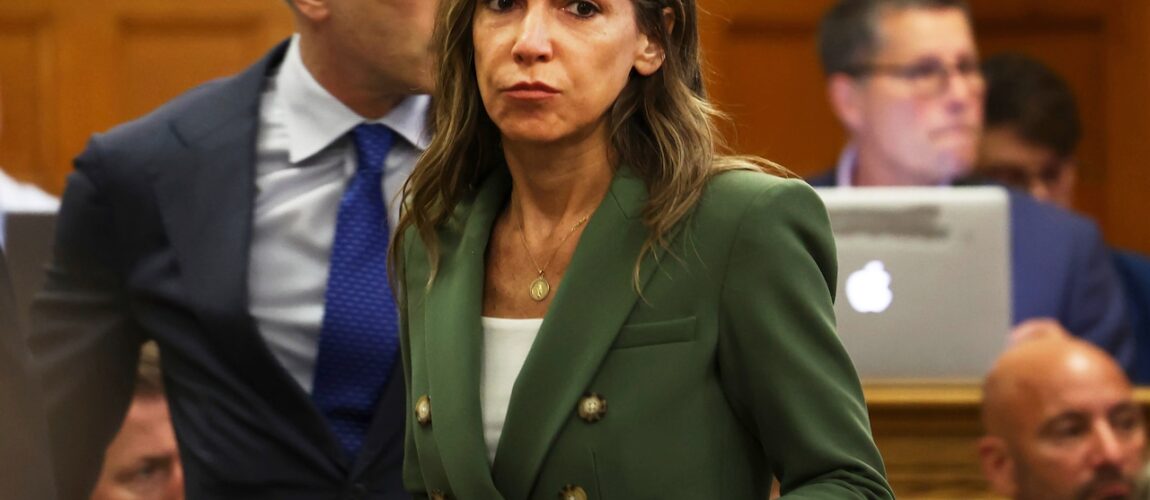The judge in the Karen Read retrial decided against telling jurors that they are allowed to return a split verdict on Tuesday — an issue raised shortly after her mistrial last year.
Split verdicts — when a jury finds a defendant guilty on some charges but acquits on others — are allowed under Massachusetts state law, but legal experts told MassLive that jury deliberations are sensitive processes, and judges must be careful about the responses provided to jury questions.
“Basically, split verdicts are sometimes called compromise or mercy verdicts because maybe the jury isn’t convinced about the top charge or top couple of charges,” Daniel Medwed, a law professor at Northeastern University, said on Tuesday. “But the jury still feels like the defendant should be held accountable for something.”
Jurors already raised a question about convicting Read of a lesser offense of operating under the influence before they asked Judge Beverly Cannone about a hung jury scenario on Tuesday.
The jury asked the judge if they found Read not guilty on two charges but did not agree on one charge, “Is it a hung jury on all three charges or just the one charge?”
“If that question remains in their minds, we’re gonna end up in the exact same position that we were in last year,” Alan Jackson told the judge.
Cannone sent the jurors a handwritten note telling them she could not answer their question and that they should not be “concerned with the consequences of their verdict, and that’s exactly what they are doing here.”
Jack Lu, a retired Massachusetts Superior Court judge, said that jurors are at a “hypersensitive time” in their deliberations.
“The smallest thing done by the judge could influence the verdict,” Lu said.
He agreed that Cannone should not answer hypothetical questions and that jurors should return “verdicts consistent with their conscience.”
“If they are deadlocked, if they are unable to agree, they should report that as well,” Lu said.
Cannone told Read’s lawyers that the question from jurors about a hung jury was “premature,” “hypothetical,” and “theoretical.”
The jury did not indicate they were at an impasse, Medwed noted, and he said that 14 hours of deliberations is not a long time in the “scheme of things.”
“The judge understandably wants to be very cautious about somehow inserting herself in the deliberations at this point,” Medwed said. “Jury deliberations have a lot of twists and turns, and it’s an iterative process.”
Following last year’s mistrial, some jurors came forward and told defense attorneys — and in some cases submitted court affidavits — saying that they were unaware they could return a verdict on two of three counts and remain undecided on a third.
Read’s lawyers argued that jurors agreed unanimously that she was not guilty on charges of second-degree murder and leaving the scene of an accident causing injury or death, but due to confusing jury instructions, did not mark the verdict slip.
They said a second trial on those two counts would constitute double jeopardy, and they appealed all the way up to the U.S. Supreme Court.
The nation’s highest court declined to take up her petition in a decision at the end of April.
The issue of verdict slips sprang up once again in Read’s retrial.
On Monday, Cannone denied a motion by Read’s lawyers to amend the verdict slip given to jurors. The defense argued the verdict slip, which includes one box for “not guilty” and several boxes for “guilty,” reflecting the lesser-included charges, is confusing for jurors.
On Tuesday, Cannone provided the jury with a new, amended verdict slip after the jury submitted three questions.
She explained to jurors that they could acquit or convict Read of the manslaughter OUI charge and all lesser included charges. The jury could also acquit or convict Read of each lesser included offense.
In another high-profile case, a jury returned a split verdict last week in the trial of Harvey Weinstein, the former Hollywood mogul.
Jurors in Manhattan convicted Weinstein of a felony sex crime and acquitted him on a second count. They were unable to reach unanimity on a third charge, according to The New York Times. The judge declared a mistrial on the final charge.
Jurors in the Read retrial left without returning a verdict at about 4 p.m. Tuesday. They will return on Wednesday for their third full day of deliberations. They deliberated for a few hours after closing arguments on Friday.
Read, 45, is charged with second-degree murder, manslaughter while operating under the influence and leaving the scene of an accident causing injury or death.
Prosecutors say she drove her Lexus SUV in reverse at a high speed and struck her boyfriend, Boston police officer John O’Keefe, outside the Canton home of another police officer in January 2022. Read’s defense says no collision occurred and that others are to blame for his death.

